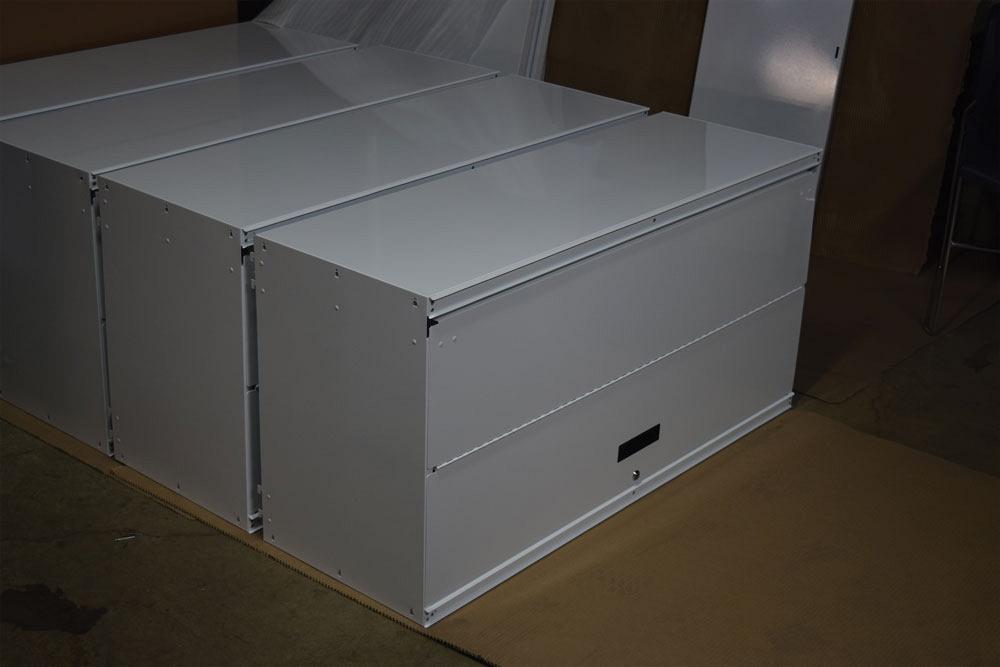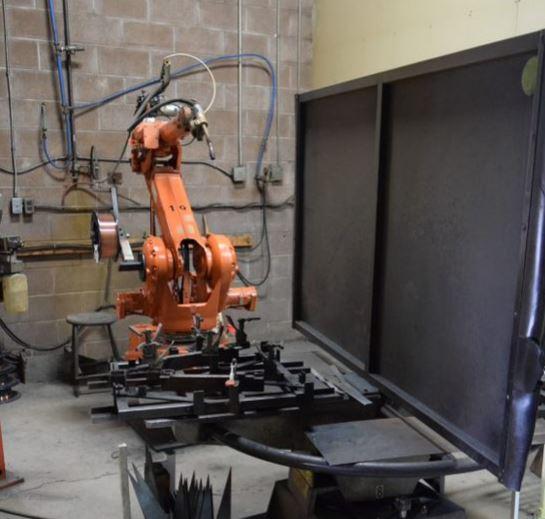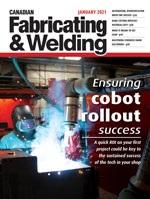Editor
- FMA
- The Fabricator
- FABTECH
- Canadian Metalworking
Automation, diversification drive FMF success
Kitchener-Waterloo company credits team spirit for continued success of 35-year-old business
- By Rob Colman
- January 18, 2021
- Article
- Fabricating
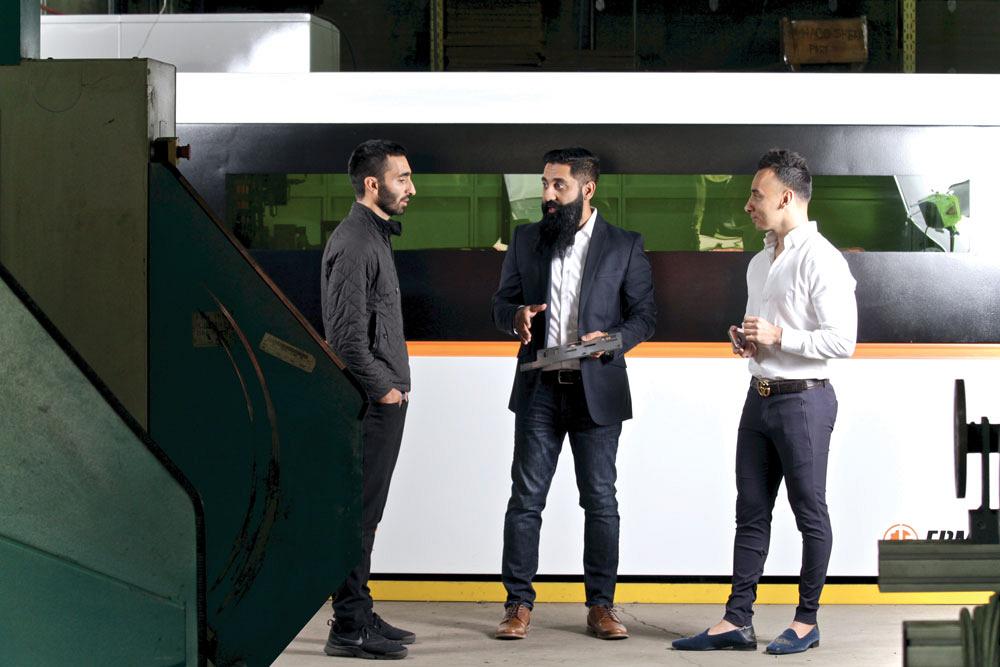
Nomar Abdullah, Amad Abdullah, and Mueen Abdullah, presidents of FMF Store Fixtures, KW Signs, and FMF Metal Fabrication, in front of the group’s new Ermaksan Fibermak Raptop 2-kW fibre laser.
Any company that hopes to continue to grow has to adapt to market changes and find new ways to add value to its business. FMF Group has done just that by adding new machines and fine-tuning lean processes to speed delivery in its metal fabrication operations, while expanding market reach through distributors in its sign company, KW Signs. With the different units of the parent company working closely together, KW Signs has become one of the fastest-growing companies in Canada.
Sign Growth
FMF began its history in 1975 as a metal fabrication job shop, doing whatever was required of it in the Kitchener-Waterloo region. The one company is now run by the sons of the original two owners as three vertically integrated businesses under the FMF Group banner: FMF Metal Fabrication, FMF Store Fixtures, and KW Signs.
The founders of the company always understood the value of having a product of their own to provide to the marketplace, and their sons have simply taken the sophistication of that market outreach to a new level.
“When we first started KW Signs, the approach was very much grassroots, door-to-door sales of items,” said KW Signs President Amad Abdullah. “Since those early days, we’ve moved to a distribution model, where we create a catalogue of the different sign designs we manufacture and sell those products in bulk. This allows us to focus on our core competency, which is manufacturing. The distributors, meanwhile, provide feedback to us and suggest new concepts and designs that are growing in popularity in the market and we can design around those ideas.”
KW Signs was front and centre during the last federal election here in Canada, as it was a go-to supplier of the H-shaped stakes used for most election signs. The company has made inroads south of the border for those stakes . Its product line includes A-frame signs and upmarket metal designs for real estate signs. Most of its products are made in either steel or aluminum.
New Tech Benefits
While having the sign business as one of its throughput backbones is useful, the group requires the fabrication operations at FMF to be agile enough to handle large-run production while at the same time serve the needs of outside fabrication customers. These custom fab jobs include after-market accessories for the automotive market, pharmaceutical cabinets, and a variety of prototyping work.
“Over time we’ve evolved, adding different machinery and expertise,” said Amad. “This has included incorporating design and prototyping skills, while building a full-fledged powder coating line, adding robotic welding and, most recently, fibre laser cutting and new press brake technology.”
The shop has three robotic welding cells, two turret punch presses, and about five legacy press brakes. The new additions are a 2-kW Ermaksan fibre laser and an Ermaksan 10-ft., 175-ton Speed-Bend press brake.
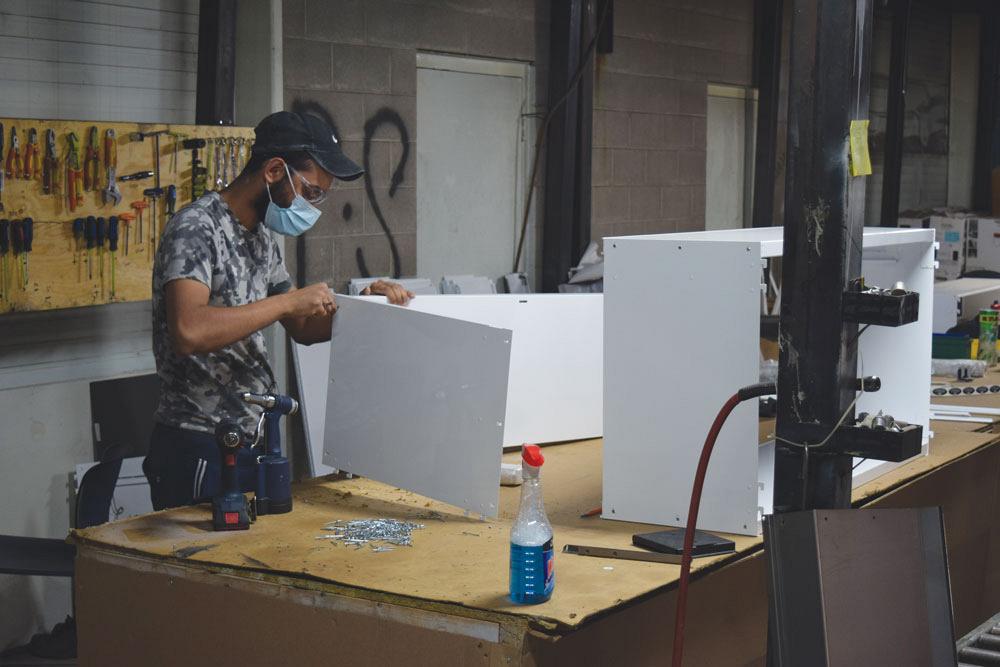
The FMF shop prides itself on doing everything in-house, from cutting to powder coating to assembly. Here we see a pharmaceutical cabinet being assembled.
“We have had another local company doing our laser cutting for years now,” said Mueen Abdullah, president of FMF Metal Fabrication. “The biggest thing that’s changed for us with the laser purchase is our turnaround time. I can get a prototype to a customer now in an hour, fully cut, bent, and welded. That has impressed our customers. The excitement of doing the work has always been there, but the speed wasn’t possible without the laser.”
FMF went with Ermaksan because of its proximity to the supplier, knowing that if service is needed, they are only a short drive away.
“We also have an older Ermaksan press brake that we use to bend 5/16 flat bar on it, all day, every day, and we have no issue with it. The newer machine has a 3D colour controller, which simplifies running more complicated parts and allows for programming offline. The laser angle measure system also allows us to run it accurately more quickly than our older brakes.”
The choice of a 2-kW laser in a market where higher-wattage machines are becoming the norm was also a simple decision for FMF.
“That’s really all our work demands,” said Mueen. “We don’t cut anything thicker than about 3/8 in., so this suited our needs.”
Self-sufficient Expertise
The depth and breadth of the fabrication operations are at the heart of the success of the business, however. Keeping as much as possible in-house means that the shop can help others and itself.
“For instance, we develop all the jigs and fixtures for our welding cells ourselves,” said Mueen. “Less than 10 per cent of what we manufacture has to be outsourced now. This means we have full control over our quality and production schedule.”
This ability to control quality output of its own work also helps FMF’s customers.
“We help local stamping companies and other fab shops with their powder coating needs,” said Mueen. “In the process of doing these jobs, we can pinpoint quality control issues in products we are coating and fix them for the customer, which they really appreciate. That’s not something every powder coating operation would be able to do.”
The FMF team brings this customer support into other areas as well.
“Anyone can take a drawing given to them by a client and fabricate it,” said Amad. “What we do is we take that drawing, sit down with the customer and say, ‘How can we make this better? How can we engineer it for cost savings, quality improvements, or durability?’ We want to look out for their business as well as our own, which is why our client retention rate is so high.”
Lean Management
Mueen noted that the shop is currently going through the task of creating lean management processes that will allow FMF to apply for ISO certification.
“The key to our success in this initiative, as in everything else, is selectively hiring good-quality people in all departments of the business,” said Mueen. “While the combination of automation and efficient processes makes a big difference, hiring the right people and retaining them is critical to making that work. We do this by treating our people well and doing what we can to show our appreciation, such as regular catered lunches for staff, and just being out there on the floor with the team so that they can see that this is a family-run environment we want them to be a part of.”
Lean efforts at the company, meanwhile, have allowed it to grow while retaining a 25,000-sq.-ft. shop.
“We’ve been expanding by adding mezzanines to the shop,” said Amad. “Right now we are at our peak capacity, but we’ve managed to stay in the same footprint by keeping leaner so we’re not warehousing too much material. We are ordering smarter by keeping a pulse on data we collect in our in-house-developed ERP system.”
“The biggest challenge of developing the ERP system is ensuring that all the data we require is entered into the system,” said Mueen. “We have someone dedicated to inputting that data, but many people are trained to do that work to ensure it’s always handled properly.”
The work of keeping pace with industry changes and developing a lean approach to business operations paid off in 2020 when KW Signs appeared on The Globe and Mail's Fastest Growing Companies list, as well as Canadian Business' list of Fastest Growing Companies. The company also received the same magazine's Excellence in Diversity Award.
Speaking of the Globe and Mail recognition, Amad said, “Not a lot of manufacturers are on that list. We’ve just done simple things to build up the strength of the company, but all of those small things have built up together to create this success.”
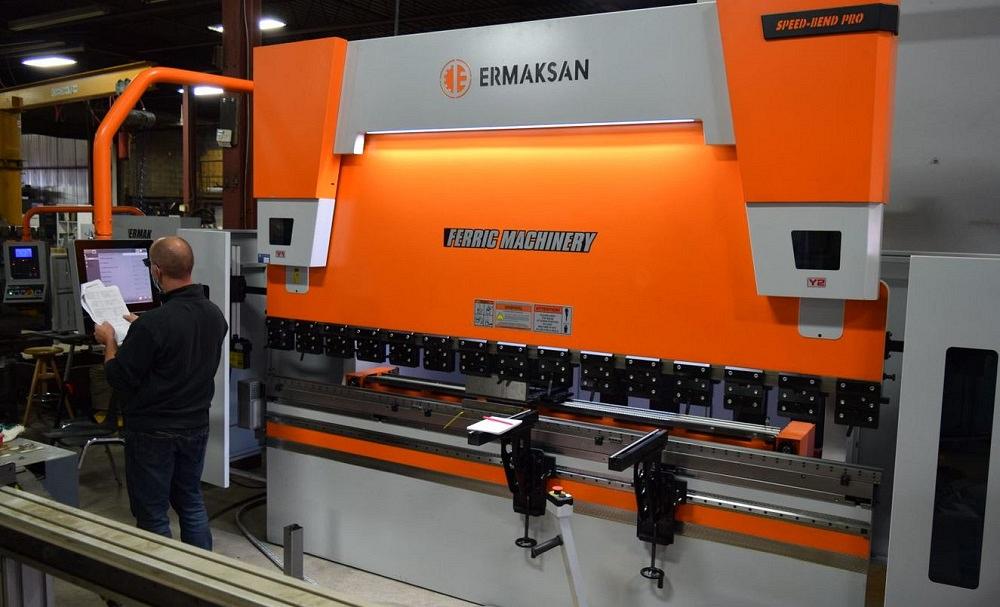
The newest addition to the shop is an Ermaksan 10-ft., 175-ton Speed-Bend Pro press brake purchased from Ferric Machinery.
Editor Robert Colman can be reached at rcolman@canadianfabweld.com.
FMF Metal Fabrication, fmfmetal.com
FMF Store Fixtures, fmfstorefixtures.com
KW Signs, kwsigns.com
About the Author

Rob Colman
1154 Warden Avenue
Toronto, M1R 0A1 Canada
905-235-0471
Robert Colman has worked as a writer and editor for more than 25 years, covering the needs of a variety of trades. He has been dedicated to the metalworking industry for the past 13 years, serving as editor for Metalworking Production & Purchasing (MP&P) and, since January 2016, the editor of Canadian Fabricating & Welding. He graduated with a B.A. degree from McGill University and a Master’s degree from UBC.
subscribe now


Keep up to date with the latest news, events, and technology for all things metal from our pair of monthly magazines written specifically for Canadian manufacturers!
Start Your Free Subscription- Trending Articles
Aluminum MIG welding wire upgraded with a proprietary and patented surface treatment technology

Achieving success with mechanized plasma cutting
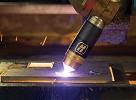
Hypertherm Associates partners with Rapyuta Robotics
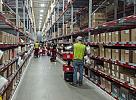
Gema welcomes controller

Brushless copper tubing cutter adjusts to ODs up to 2-1/8 in.
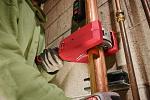
- Industry Events
MME Winnipeg
- April 30, 2024
- Winnipeg, ON Canada
CTMA Economic Uncertainty: Helping You Navigate Windsor Seminar
- April 30, 2024
- Windsor, ON Canada
CTMA Economic Uncertainty: Helping You Navigate Kitchener Seminar
- May 2, 2024
- Kitchener, ON Canada
Automate 2024
- May 6 - 9, 2024
- Chicago, IL
ANCA Open House
- May 7 - 8, 2024
- Wixom, MI













